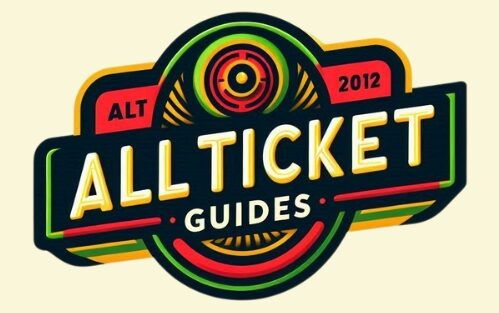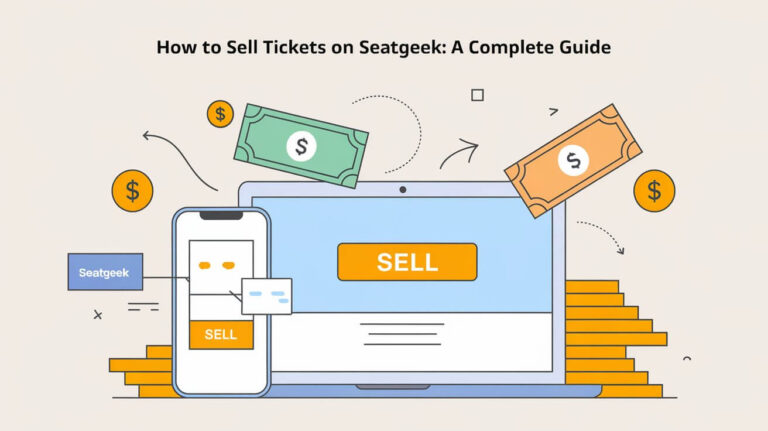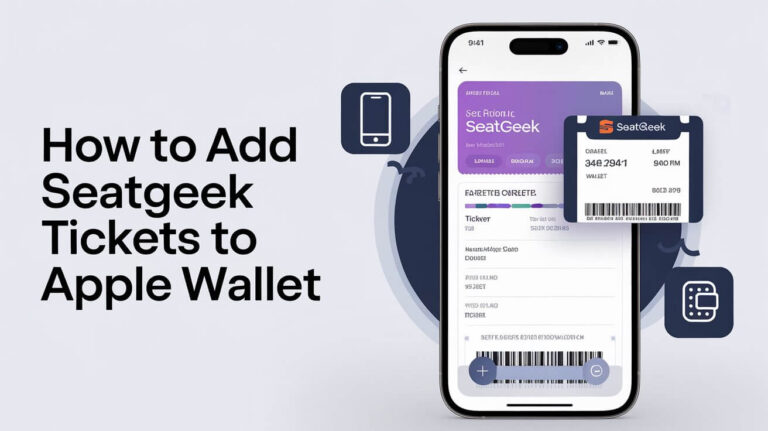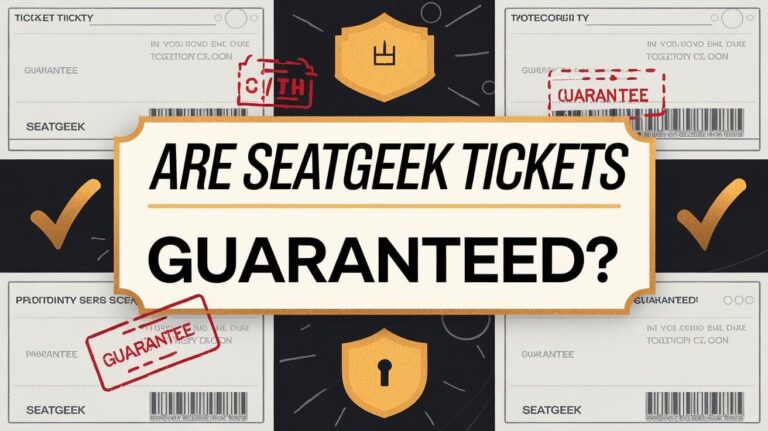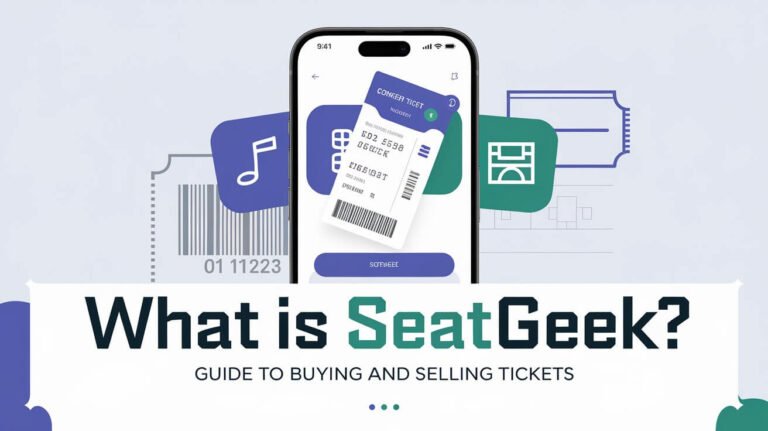Who Owns SeatGeek? Exploring Ownership Structure & Impact
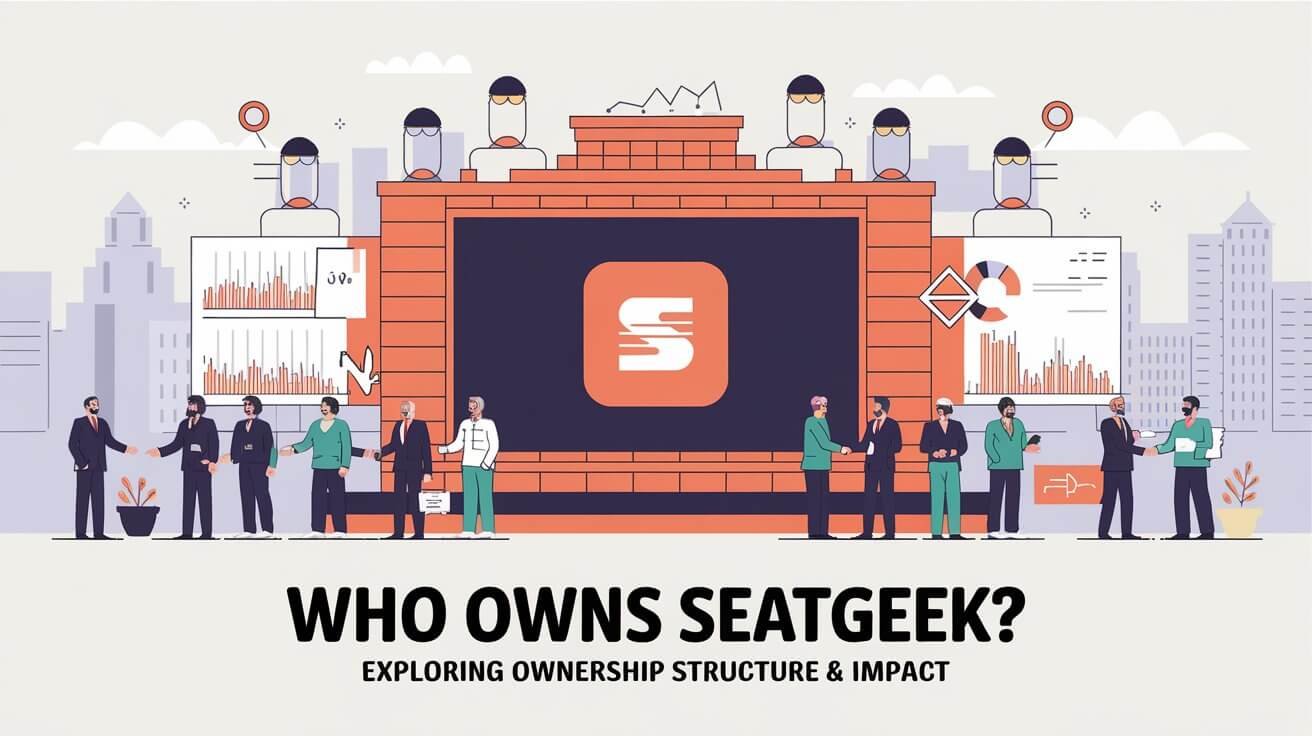
SeatGeek is a popular ticketing platform known for providing a seamless experience in purchasing tickets for sports, concerts, and other events. Its innovative technology and user-friendly interface have made it a favorite among event-goers. But who actually owns SeatGeek? This article dives deep into the ownership structure of SeatGeek, from its founders to the current stakeholders, and explores how ownership impacts its operations and market position.
SeatGeek Overview
What is SeatGeek?
SeatGeek is a mobile-focused ticket platform that aggregates tickets from various sources, allowing users to compare prices and buy tickets conveniently. Launched in 2009, it has grown into a major player in the ticketing industry, offering tickets for a wide range of events across the globe.
Brief History of SeatGeek
Founded by Jack Groetzinger and Russell D’Souza, SeatGeek started as a project at their alma mater, Harvard University. Their goal was to create a more efficient way to find the best deals on event tickets. Over the years, SeatGeek has evolved, incorporating advanced technology like machine learning and data analytics to enhance user experience.
SeatGeek’s Market Position and Competitors
SeatGeek operates in a competitive market with rivals like Ticketmaster, StubHub, and Vivid Seats. Despite the competition, SeatGeek has carved out a niche for itself with its innovative features and customer-centric approach.
Founding and Early Ownership
Founders of SeatGeek
Jack Groetzinger
Jack Groetzinger, one of the co-founders, has a background in consulting and a passion for technology and sports. His vision for a better ticket-buying experience led to the creation of SeatGeek.
Russell D’Souza
Russell D’Souza, the other co-founder, brought his expertise in data and analytics to SeatGeek. Together with Groetzinger, he laid the foundation for what SeatGeek would become.
Early Funding Rounds and Investors
Series A and Initial Seed Funding
SeatGeek secured its initial funding through a seed round, attracting investments from notable venture capitalists. This early funding was crucial in developing the platform and expanding its capabilities.
Notable Early Investors
Early investors included well-known VC firms and angel investors who recognized the potential of SeatGeek’s innovative approach to ticketing. Their support helped SeatGeek scale quickly and compete with established players.
Major Investors and Stakeholders
Institutional Investors
Accel Partners
Accel Partners, a prominent venture capital firm, was one of the key early investors in SeatGeek. Their investment provided the necessary capital for SeatGeek’s growth and development.
Technology Crossover Ventures (TCV)
Technology Crossover Ventures (TCV) joined as a major investor in later funding rounds, bringing additional financial support and strategic guidance to SeatGeek.
Other Venture Capital Firms
Other notable VC firms have also invested in SeatGeek over the years, contributing to its financial stability and growth.
Corporate Investors
Relationship with Major Sports Leagues and Teams
SeatGeek has formed strategic partnerships with major sports leagues and teams, which have also invested in the platform. These partnerships enhance SeatGeek’s visibility and access to exclusive ticket inventories.
Latest Funding Rounds
Series C, D, E Funding Rounds
SeatGeek’s latest funding rounds, including Series C, D, and E, attracted significant investments from both new and existing investors. These rounds have propelled SeatGeek’s expansion into new markets and enhanced its technological infrastructure.
Key Financial Contributions
The financial contributions from these funding rounds have been used to enhance SeatGeek’s platform, improve its technology, and expand its market presence.
Public Perception and Media Coverage
SeatGeek’s Public Image
SeatGeek is generally viewed positively by the public for its user-friendly interface and transparency in ticket pricing. Its app is highly rated, and users appreciate the seamless experience it offers.
Media Reports on Ownership Changes
SeatGeek’s ownership structure has been covered by various media outlets, especially following significant funding rounds or partnerships. These reports provide insights into how the company’s ownership has evolved.
Recent Developments in Ownership
Recent years have seen changes in SeatGeek’s ownership, with new investors coming on board and existing stakeholders increasing their stakes. These developments reflect the growing confidence in SeatGeek’s business model and future prospects.
SeatGeek’s Current Ownership Structure
Key Shareholders
Percentage Breakdown of Ownership
SeatGeek’s ownership is distributed among its founders, institutional investors, and corporate partners. Here’s a breakdown of the key stakeholders and their approximate ownership percentages:
- Founders and Early Team: ~20%
- Venture Capital Firms: ~50%
- Corporate Partners: ~15%
- Other Investors: ~15%
CEO and Management Team
Role in Ownership
The CEO and management team play a crucial role in SeatGeek’s ownership structure. They hold significant equity stakes, aligning their interests with the company’s success.
Key Figures and Their Shares
Key figures like the CEO, CTO, and other top executives hold shares in SeatGeek, incentivizing them to drive the company’s growth and profitability.
Employee Stock Options and Ownership
SeatGeek offers stock options to its employees, allowing them to own a part of the company. This practice not only motivates employees but also aligns their interests with the company’s long-term goals.
Impact of Ownership on SeatGeek’s Operations
Decision-Making and Strategy
SeatGeek’s ownership structure influences its decision-making and strategic direction. Major investors and the management team collaborate to steer the company towards growth and innovation.
Financial Health and Growth
The support from investors has been instrumental in SeatGeek’s financial health. It has enabled the company to invest in technology, expand its market presence, and maintain competitive pricing.
Innovation and Technology Investments
SeatGeek’s ownership structure allows it to invest heavily in technology. These investments have led to features like dynamic pricing, 3D seat views, and personalized recommendations.
Market Expansion and Partnerships
Ownership has also played a role in SeatGeek’s market expansion. Strategic partnerships with sports leagues and event organizers have expanded SeatGeek’s ticket inventory and market reach.
SeatGeek’s Future Ownership Prospects
Potential for IPO
Preparations for Going Public
There has been speculation about SeatGeek preparing for an Initial Public Offering (IPO). Going public could provide SeatGeek with additional capital and increase its market visibility.
Speculations on Market Impact
An IPO could significantly impact SeatGeek’s market position, potentially making it a more formidable competitor against established players like Ticketmaster and StubHub.
Mergers and Acquisitions
Likely Suitors and Strategic Fits
There is also the possibility of SeatGeek being acquired by a larger corporation or merging with another company. Such a move could further solidify its position in the ticketing industry.
Trends in Ticketing Industry and Impact on Ownership
The ticketing industry is evolving, with trends like digital ticketing and blockchain technology shaping its future. These trends could influence SeatGeek’s ownership and strategic decisions.
Comparison with Competitors
Ownership Structures of Major Competitors
Ticketmaster
Ticketmaster, a subsidiary of Live Nation Entertainment, has a different ownership structure compared to SeatGeek. Its integration with Live Nation provides it with extensive resources and market reach.
StubHub
StubHub, owned by Viagogo, operates under a different ownership model. Its focus on secondary ticket sales distinguishes it from SeatGeek’s primary and secondary market approach.
Vivid Seats
Vivid Seats, another competitor, has its own set of investors and stakeholders. Comparing these ownership structures helps understand how different business models impact market strategies.
How SeatGeek’s Ownership Affects Competitive Edge
SeatGeek’s ownership structure, with a mix of institutional investors and strategic partners, gives it a competitive edge by providing financial stability and fostering innovation.
Legal and Regulatory Aspects of Ownership
Compliance with Securities Laws
As a private company, SeatGeek complies with various securities laws that govern its funding and ownership. These regulations ensure transparency and protect investors’ interests.
Impact of Antitrust Regulations
Antitrust regulations play a role in SeatGeek’s operations, especially as it grows and potentially enters new markets. Compliance with these regulations is crucial to avoid legal challenges.
Legal Challenges and Ownership Changes
SeatGeek has faced legal challenges in the past, like any major company. These challenges can sometimes lead to changes in ownership or strategic adjustments.
SeatGeek’s Impact on the Industry
Innovations Brought by SeatGeek
SeatGeek has introduced several innovations, such as interactive seat maps and deal scores, which have set new standards in the ticketing industry.
Influence on Ticketing Practices
SeatGeek’s approach has influenced ticketing practices, promoting transparency and fair pricing. This influence has led competitors to adopt similar features to stay relevant.
Partnerships with Sports Teams and Entertainment Venues
SeatGeek’s partnerships with sports teams and entertainment venues have enhanced its ticket inventory and provided exclusive access to events, benefiting users.
Summary of Ownership Journey
Key Milestones in Ownership
SeatGeek’s ownership journey has been marked by significant milestones, including early funding rounds, major investments, and strategic partnerships.
Current Ownership Status
Today, SeatGeek is owned by a mix of founders, institutional investors, and corporate partners. This diverse ownership structure supports its growth and innovation.
Future Outlook
Looking ahead, SeatGeek’s ownership is likely to evolve further as it explores opportunities for an IPO, potential mergers, or strategic acquisitions.
Case Studies of SeatGeek’s Business Decisions Related to Ownership
Major Partnerships
SeatGeek’s ownership has influenced its ability to secure major partnerships, such as deals with NFL teams and MLS, enhancing its market position.
Market Expansions
Ownership decisions have supported SeatGeek’s expansion into new markets, allowing it to offer tickets for events in Europe and other regions.
Technological Advancements
The backing from investors has enabled SeatGeek to invest in cutting-edge technology, setting it apart from competitors and enhancing the user experience.
In-Depth Look at Founders’ Vision and Influence
Interviews and Quotes
Interviews with Jack Groetzinger and Russell D’Souza provide insights into their vision for SeatGeek and how their leadership has shaped the company’s direction.
Founders’ Role in Current Operations
The founders continue to play an active role in SeatGeek’s operations, guiding its strategic decisions and ensuring it stays true to its mission.
SeatGeek’s Role in the Gig Economy
How SeatGeek Empowers Independent Ticket Sellers
SeatGeek’s platform supports independent ticket sellers by providing a marketplace for them to reach a larger audience and sell tickets more efficiently.
Integration with Secondary Markets
SeatGeek’s integration with secondary markets allows it to offer a wider range of tickets, catering to different types of buyers and sellers.
Conclusion
SeatGeek’s ownership is a dynamic mix of founders, investors, and corporate partners, each playing a crucial role in its growth and success. Understanding who owns SeatGeek provides insights into its strategic decisions, financial health, and market position. As SeatGeek continues to evolve, its ownership structure will likely adapt, reflecting changes in the ticketing industry and its expanding global footprint.
This comprehensive guide covers the key aspects of SeatGeek’s ownership, offering a clear view of who controls this innovative ticketing platform and how it impacts its operations and future prospects.
